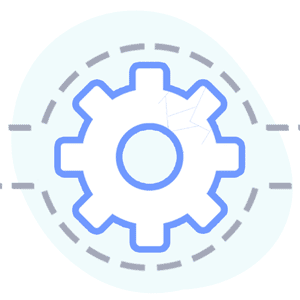Next Level Administrators
Next Level NATIONAL DATA
Next Level CALIFORNIA DATA - EDI COMPLIANCE
Since October 2012, California law has mandated that claims administrators accept electronic medical bills (e-bills) and adhere to specific timeframes established by the Division of Workers’ Compensation (DWC) Medical Billing and Payment Guide. These timeframes govern the following Electronic Data Interchange (EDI) transactions:
837 (e-bill) Receipt: The provider's initial submission of the electronic medical bill and subsequent Second Review appeals.
277 Acknowledgement (ACK) Receipt: An electronic confirmation from the claims administrator indicating that the e-bill has been received and whether it has been accepted or rejected.
835 Explanation of Review (EOR) Receipt: A detailed electronic response from the claims administrator outlining the adjudication results of the e-bill, including payment details or reasons for denial.
By tracking this EDI data, daisyBill helps providers identify trends, resolve billing discrepancies, and maintain transparency in the workers’ comp electronic billing process.
837 e-Bill Sent
California law requires Next Level to accept workers’ comp e-bills and Second Review appeals submitted electronically by providers. daisyBill transmits all bills and appeals using the X12 837 EDI standard, as mandated by DWC Rule 7.1.
When Next Level fails to accept e-bills compliantly, daisyBill resorts to non-EDI methods (fax, email, or mail) to submit paper bills for processing.
The table below shows how often Next Level properly accepts e-bills sent via the required X12 837 EDI standard and how often Next Level's failure forces providers to submit paper bills.
277 Acknowledgement (ACK) - Timeliness
California requires Next Level to electronically send a 277 Acknowledgement (277 ACK) to the provider within two working days of receiving an e-bill. This notice confirms whether Next Level accepted or rejected the e-bill for payment adjudication. If the 277 ACK indicates acceptance, it serves as proof that Next Level received the e-bill for processing.
The table below shows how often Next Level sends 277 ACK notices to daisyBill clients within the required two working days after receiving an e-bill.
277 Acknowledgement - Erroneous e-Bill Rejections
daisyBill tracks the following criteria from Next Level 277 Acknowledgement (277 ACK) responses to e-bills:
277 Accept: Confirms that the e-bill was accepted for payment adjudication.
277 Reject: Indicates that the e-bill was rejected, with an associated STC Category and STC Code explaining the reason.
STC Invalid – Reject Second Review: An improper rejection of a Second Review appeal using invalid STC Category and/or STC Code.
STC Invalid – Reject Injury Claim Valid: An incorrect rejection of an e-bill where the claims administrator previously paid another bill associated with the same injury claim.
STC Invalid – Reject Category/Code: A rejection where the STC Category and/or STC Code provided is invalid or not allowed.
STC Invalid – Reject Prior Accept: An incorrect rejection of an e-bill that was previously accepted via an earlier 277 ACK.
These criteria provide detailed insight into how often Next Level appropriately processes or improperly rejects e-bills and appeals.
835 Explanation of Review (EOR) Receipt
An electronic Explanation of Review (EOR) is transmitted using the X12 835 EDI standard and provides details on the adjudication of an e-bill. DWC Rule 7.1 requires Next Level to electronically send an Explanation of Review (EOR) to the provider using the X12 835 EDI standard.
For Original e-Bills, Next Level must electronically send the EOR within 15 working days after receiving the e-bill.
For Second Review Appeals, Next Level must electronically send the EOR within 14 calendar days after receiving the Second Review e-bill.
The table below shows how often Next Level sends X12 835 EORs to daisyBill clients within the required timeframes.
Next Level CALIFORNIA DATA - REIMBURSEMENT STATISTICS
CA Average Days to Pay
For each bill sent from daisyBill software to Next Level, our technology tracks the count of business days it took Next Level to process the bill.
For the listed California workers’ comp fee schedules, this table reflects the average count of business days from Next Level’s receipt of a bill until the daisyBill client received an explanation of review (EOR) and payment from Next Level.
* California requires claims administrators to pay e-bills for medical treatment within 15 working days of receipt of the e-bill.
CA Official Medical Fee Schedule
The California Official Medical Fee Schedule (OMFS) establishes the reimbursement amounts due to providers for medical treatment furnished to injured workers. However, rather than reimbursing providers the reimbursement amounts due per the OMFS, Next Level uses Preferred Provider Organizations (PPOs) to reduce the reimbursements paid to providers.
For Next Level medical treatment bills, this table reflects the OMFS Reimbursement Due to daisyBill clients for medical treatment provided to injured workers. Next Level Reimbursement Reduction reflects the amount Next Level failed to pay daisyBill clients. The Next Level Reduced Reimbursement reflects the reimbursement amount Next Level ultimately reimbursed daisyBill providers.
Next Level CALIFORNIA DATA - PENALTY & INTEREST
If Next Level fails to remit payment within mandated time frames, California law requires the claims administrator to “self-execute” Penalty and Interest payments directly to the provider. Often claims administrators fail to self-execute these Penalities and Interest (P&I).
Using e-billing data, daisyBill calculates the Total P&I Due to daisyBill clients and the amount of P&I Next Level reported paying our clients.
The Penalty & Interest Balance Due displayed here is the amount Next Level failed to self-execute to daisyBill clients as mandated by California law.
Once a bill payment is 45 calendar days overdue, daisyBill calculates Penalty and Interest amounts owed. Total P&I Due may slightly overstate the amount owed by Next Level in the instances where the underlying employer is a government employer, as California allows government employers 60 calendar days to timely reimburse workers' comp bills.
*EOR Missing Count reflects the instances where Next Level failed to electronically send the provider an EOR, therefore, daisyBill could not calculate whether P&I is due for these e-bills where the EOR is missing. Data updates daily.


Although daisyBill makes every effort to ensure our information is accurate, we assume no responsibility or liability for any errors or omissions in the content of this site, directory, or blog. The information contained in this site is provided on an "as is" basis with no guarantees of completeness, accuracy, usefulness or timeliness. All data on this website is subject to change without notice to improve function, reliability, design, or otherwise. Visitors to this website should take all steps necessary to ascertain that information you receive from this website is correct and has been verified.